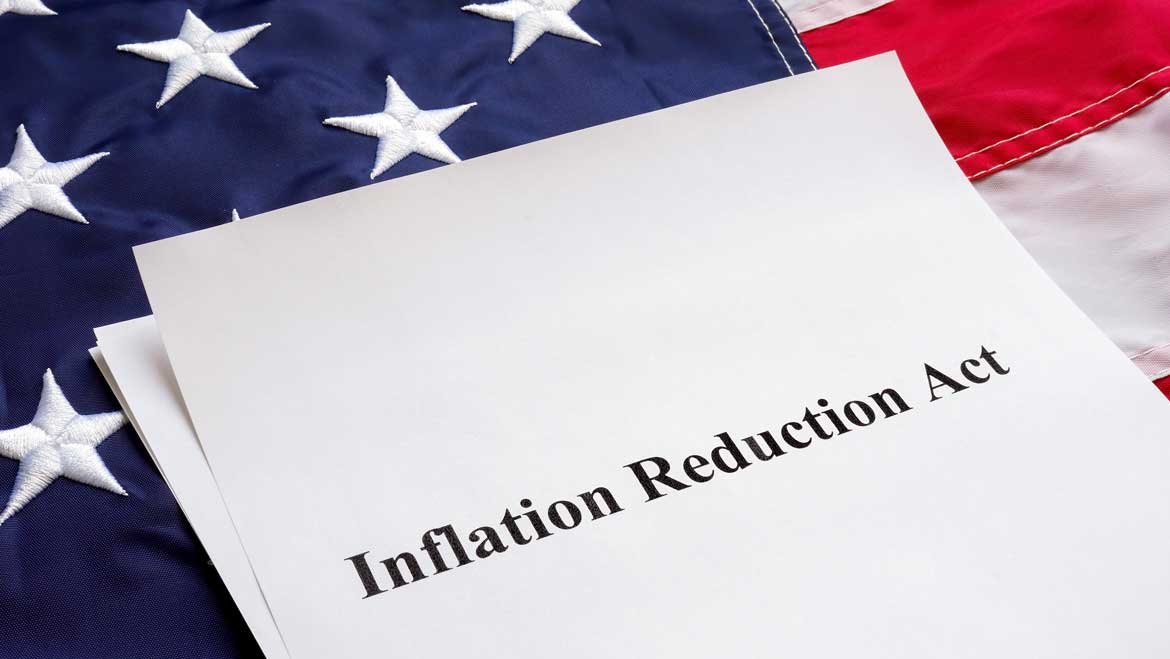
How the Inflation Reduction Act Impacts your Business and You and your Family
- August 16, 2022
- 1:24 pm
- Economy, Go Green, Taxes
You may be wondering how the Inflation Reduction Act (IRA) is going to impact you and your business. Are the tax provisions going to impact your business? What provisions are available to benefit your business or you personally?
The Minimum 15% Tax on Businesses
You’ve heard that there is a minimum 15% business tax for companies that pay little or no taxes. However, it only impacts behemoths like Amazon, Nike, FedEx, HP and Salesforce. Small- or medium-sized businesses are not affected.
ACA Subsidies Extended
The extension of ACA healthcare subsidies until 2025 will help in that the employees of small businesses will be able to afford health insurance. For many small businesses, providing health insurance to its employees is a major expense. Having ACA subsidies means that your employees can get health insurance even if you aren’t able to offer it.
The Inflation Reduction Act’s Impact on Homeowners
A major part of the IRA is moving to clean energy sources and using less energy to provide the same benefits.
Renewal Energy for Homes
Renewal Energy is a big one with a big impact on clean energy producers and green home remodeling companies. Consumers can get the following rebates starting this year:
- Up to $1,750 for a heat pump water heater
- $8,000 for a heat pump for space heating or cooling
- $840 for an electric stove or an electric heat pump clothes dryer
- $4,000 for a breaker box upgrade
- $1,600 for insulation, air sealing and ventilation
- $2,500 for electric wiring
Green remodeling will jump from a one-time $500 tax credit to an annual $1,200 / year. Many homeowners who previously couldn’t afford to “green” their home energy production will be incentivized to do so. Companies who offer these “green” services will see demand skyrocket with these incentives offered for the next 10 years. Not only will this reduce our carbon footprint, but it will reduce costs on the average household by $170 to $220 a year in electricity costs.
Tax Credits for Solar Panels
Homeowners can combine the tax credit of up to 30% for solar panels with battery systems that allow homeowners to store excess energy. This tax break for batteries starts in 2023.
Rebates for Reducing Home Energy Usage
Homeowners could get up to 50% of the cost of efficiency retrofits such as insulation and HVAC installations up to a dollar cap of up to $8,000.
Tax Credits for Electric Vehicles
The Inflation Reduction Act’s vehicle tax credits for new ($7,500) or used ($4,000) EVs is aimed at low and middle income buyers and excludes luxury EVs that sell for more than $55k or a truck or SUV that sells for more than $80k. This is a mixed bag since the downside is that the critical minerals needed to make EV batteries must come from North America or our free trade partners which eliminates quite a few EVs. However, there are still quite a few EVs left that can be purchased.
Also, there are income requirements for the $4,000 tax credits for used EVs. If you are single, your AGI can’t exceed $75,000; a married couple’s AGI can’t exceed $150,000 to get the tax credit for used EVs.
Medicare Negotiation
The IRA also allows Medicare to negotiate drug prices. That will bring down costs of many drugs. In particular, the cost of insulin will be capped at $35 / month starting next year. It will also cap the total amount that people on Medicare pay for prescriptions to $2,000 per year. If you are on Medicare, this could mean big savings for you.
The Inflation Reduction Act’s Impact on your Business
Electric Vehicles for your Business
With incentives to purchase EVs it might make sense as a business to invest in EVs rather than gas-powered vehicles. There are commercial energy tax credits available in the Inflation Reduction Act for many small businesses.
R&D Tax Credit
The IRA also doubles the maximum R&D Tax Credit that can be applied against payroll taxes. It is up to $500k from $250k. The concept of R&D is a very loose one and you could qualify. Check with your accountant or tax attorney.
Creation of Businesses
According to the head of investment at Bill Gates’ Breakthrough Energy Ventures, between 300 and 1,000 new companies might be created om the climate space. Depending upon the business you are in, this might provide you with more customers for your products or services. It could also provide you with more energy efficient products in the future.
Conclusion
There is no doubt that this is a transformative bill, particularly in the area of climate change. It is estimated that the IRA could slash US emissions by 41% by 2030. You and your company can take advantage of the IRA’s provisions to move to cleaner and less expensive energy. Since energy costs are large part of inflation, it should also bring down inflation, which will benefit businesses and consumers. It will reduce our dependence on foreign oil and help to reduce our carbon emissions.
You can make your business more energy efficient. You can also make your home more energy efficient. All with rebates and tax breaks to help you do so. It’s a win win. As always, we are available to finance your eligible business purchases.
Recent Posts
- Bonus Depreciation is About to Phase Down to 80% in 2023 December 29, 2022
- Tax Benefits of Buying Equipment & Software Before December 31, 2022 December 8, 2022
- How the Inflation Reduction Act Impacts your Business and You and your Family August 16, 2022
- Recession? What Recession? July 27, 2022
- Dimension Funding Has Paperless Financing April 26, 2022

